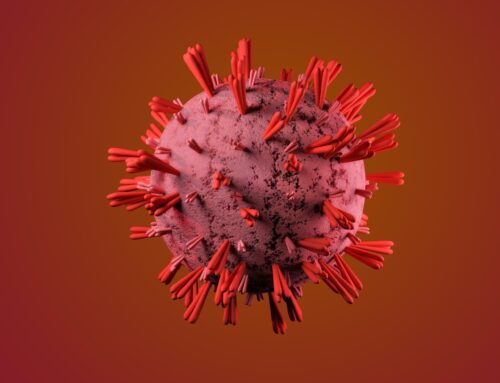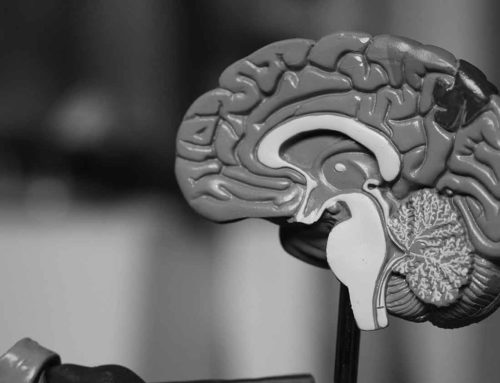There are several signs of Alzheimer’s you should know. A common symptom is memory loss, making one forget simple things and familiar locations. People with this condition also experience behavioral changes, balance issues, and poor decision-making.
How Hyperbaric Chamber Therapy Manages Alzheimer’s
Also known as hyperbaric oxygen therapy or HBOT, the treatment is most effective in the early stages of Alzheimer’s. The therapy ensures that enough oxygen gets supplied to the brain cells to boost performance.
Perhaps you’ve heard about hyperbaric treatments but don’t know how HBOT can help as an Alzheimer’s treatment. The following discussion will explain how hyperbaric oxygen therapy manages the condition.
Improves Circulation of Oxygen in the Brain
There is a close relationship between Alzheimer’s condition and oxygen deprivation in the brain (cerebral hypoxia). Cerebral hypoxia poses serious risks to any patient. A common risk is the death of brain cells, resulting in permanent brain damage and memory loss.
Hyperbaric oxygen therapy minimizes the starvation of oxygen in the brain. Adequate oxygen supply helps to prevent possible inflammations of the brain.
Brain inflammations and the death of brain cells make a loss of life almost inevitable. Hyperbaric treatments can reduce the risk of Alzheimer’s patients losing their lives. Brain hyperoxygenation may also improve impulse control and prevent chronic pain that comes with brain inflammation and damage.
Another common complication of cerebral hypoxia is a deterioration of motor skills. Alzheimer’s disease makes it difficult for patients to walk, write, or engage in other simple daily tasks. HBOT treatment may help prevent Alzheimer’s from worsening and affecting the patient’s motor skills.
The therapy also increases the flow of nutrients to the brain. Steady blood flow supplies things like nutrients to boost the performance of the brain cells. Increased blood circulation in the brain also minimizes amyloid plaques, which cause Alzheimer’s disease.
Boosts the Activity of Leukocytes
Leukocytes or white blood cells strengthen the body’s immune system to fight off diseases. The cells circulate in the blood to respond to viruses, bacteria, and other illnesses.
Mutations of white blood cells in the brain can increase the risks of early stages of dementia. The mutations cause behavioral and psychiatric changes, which progress to become dementia in the future. Alzheimer’s disease accumulates amyloid plaque in the brain, weakening the patient’s immune system.
Hyperbaric treatments increase the antibacterial activity of leukocytes. The supply of oxygen into the brain cells makes leukocytes strong and active. As a result, things like unwanted bacteria in the brain get damaged, alleviating the symptoms of Alzheimer’s.
Hyperbaric treatments also aid the regeneration of leukocytes. Continuous cell regeneration can help prevent the build-up of biotoxins and protein tau in the brain. Such toxins spread through the neurons into the brain, increasing the risks of Alzheimer’s.
Treating Anemia
There is also a close link between anemia and Alzheimer’s disease. Anemia increases the risks of cognitive problems and memory loss.
Anemia causes oxygen deprivation in the brain. Many anemic patients suffer neurological issues, headaches, breath shortness, and cognitive function disorders.
Hyperbaric oxygen therapy focuses on ensuring enough supply of oxygen and iron to the brain. Adequate oxygen in the brain cells and other body cells reduces the symptoms of Alzheimer’s in anemic patients.
Boosts Angiogenesis
Angiogenesis means the formation of new blood vessels. The vessels form from those that already exist. Angiogenesis improves the ability of the tissues to get repaired after an injury.
Age is a major factor affecting the formation of new blood vessels in the body. The hypothesis of angiogenesis maintains that Alzheimer’s symptoms are due to a lack of new blood vessels. As a result, there is less blood flow into the brain and other parts of the body.
The amount of oxygen in the body determines the quality and rate of angiogenesis. Hyperbaric treatments boost oxygen levels, aiding the creation of new blood vessels. Increased angiogenesis in older individuals reduces the risks of Alzheimer’s disease.
Hyperbaric treatments also include administering antiangiogenic drugs. The drugs are anti-inflammatory to prevent cerebral hypoxia and brain inflammations. Antiangiogenic drugs also hamper the production of biotoxins and amyloid plaque, which destroy the blood vessels.
Prevents Damage Caused by Cancer Treatments
There is no direct relationship between cancer and Alzheimer’s. Note that it is the cancer treatments that increase the risks of dementia and Alzheimer’s disease. Dementia comes gradually once cancer patients get through the treatments.
Chemotherapy increases the risks of chemo brain. Chemo brain is memory issues cancer patients develop during or after the treatments. Gradual memory loss ends up affecting the cognitive abilities of many patients.
Radiation therapy is aggressive in nature. The therapy fails to differentiate between healthy and cancerous cells, resulting in possible damage to blood vessels. Blood vessel damage is another possible cause of dementia in many cancer patients after treatments.
Hyperbaric oxygen therapy counters the damage caused by cancer treatments. The therapy aids the formation of new capillaries/blood vessels and cell regeneration.
Treats Normal Pressure Hydrocephalus (NPH)
NPH is a serious brain infection that increases the risk of dementia. The condition happens when there is excess cerebral spinal fluid in the brain’s ventricles. NHP progresses with time to damage the brain, causing memory loss, balance issues, and reasoning problems.
Head injury, brain inflammation, and hemorrhage are possible causes of NPH. Hyperbaric oxygen therapy is a great treatment for such a brain disorder. The therapy, together with surgery, removes excess cerebral fluid and aids the circulation of oxygen in the brain ventricles.
Hyperbaric treatments also prevent pressure from accumulating inside the skull. Excessive pressure in the brain results in a condition known as intracranial pressure. Intracranial pressure hampers oxygen circulation in the brain cells and increases the risks of Alzheimer’s.
Consider Hyperbaric Chamber Therapy
Oxygen deprivation in the brain is a significant risk factor for Alzheimer’s disease. Hyperbaric chamber therapy manages the condition by supplying more oxygenated blood to the brain. The brain cells get nourished, resulting in the alleviation of Alzheimer’s symptoms.
At Aalto Hyperbaric Medical Group, we provide the best hyperbaric oxygen therapy and treat many stubborn ailments. Our treatments will boost your immune system, your body’s vasculature, neurological functions, and aid your natural healing processes. Contact us today for immediate assistance.
RELATED POSTS
GET STARTED TODAY
Schedule an appointment with us today by calling (310) 507-7942 or using the contact form below.discover thisread what he saidelfbar 3500company website


